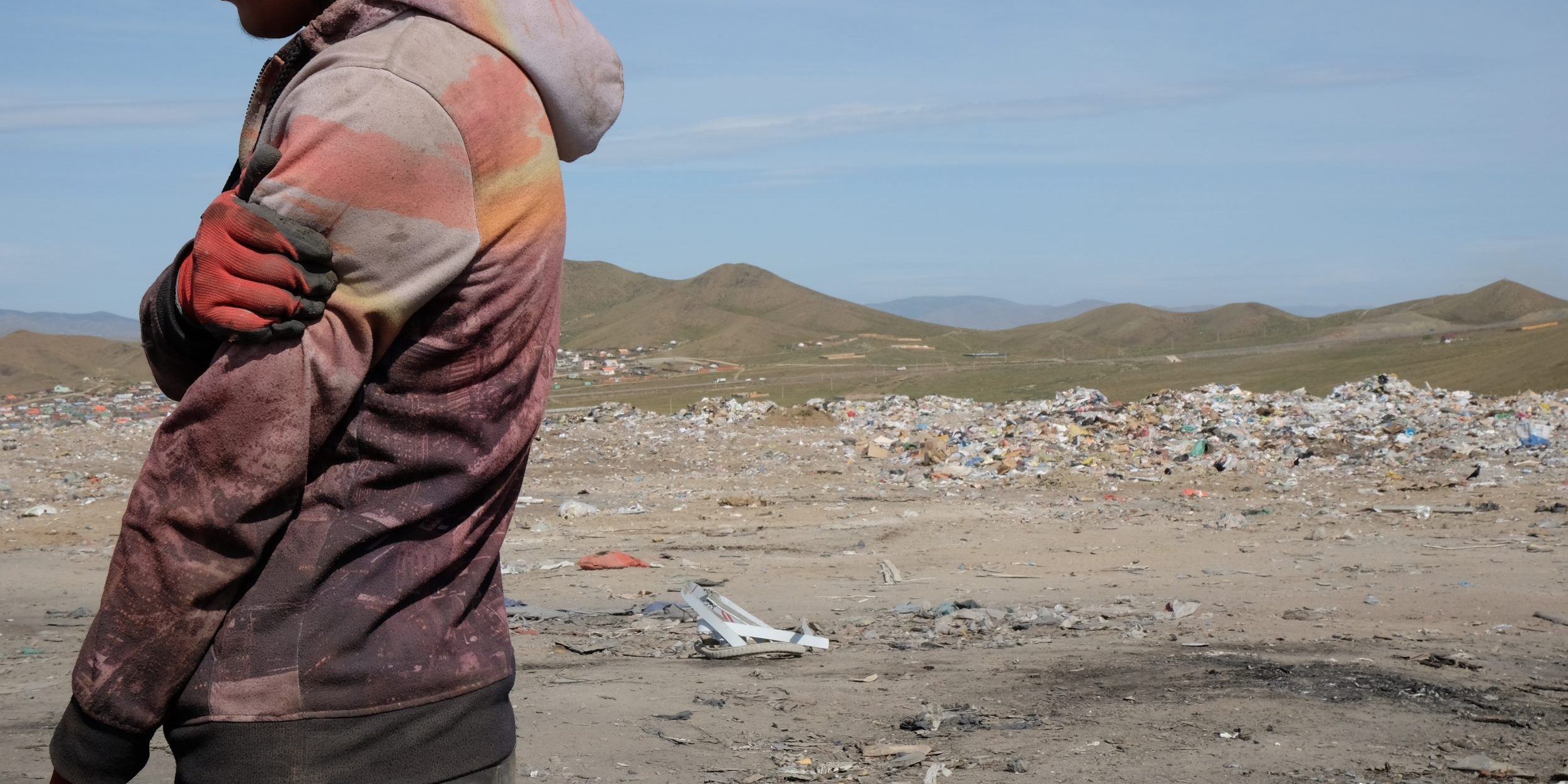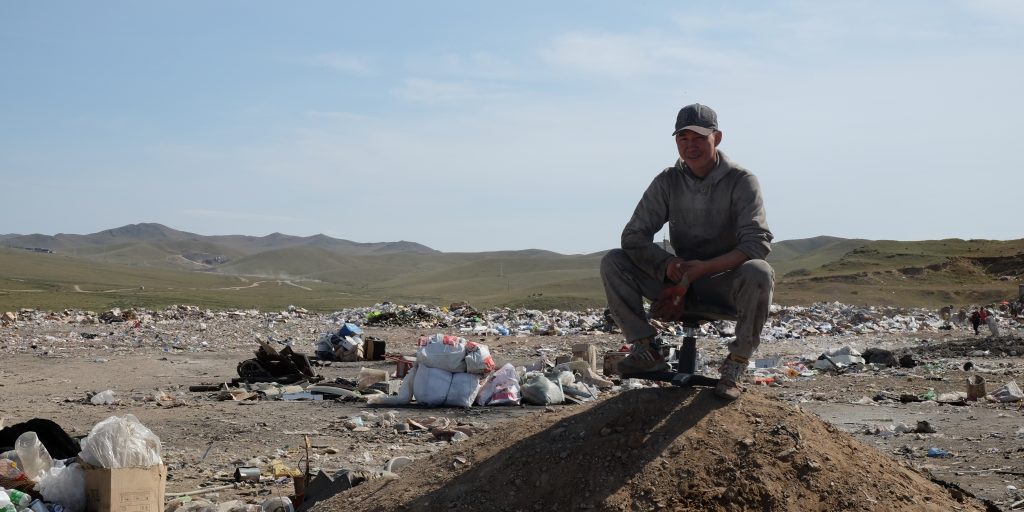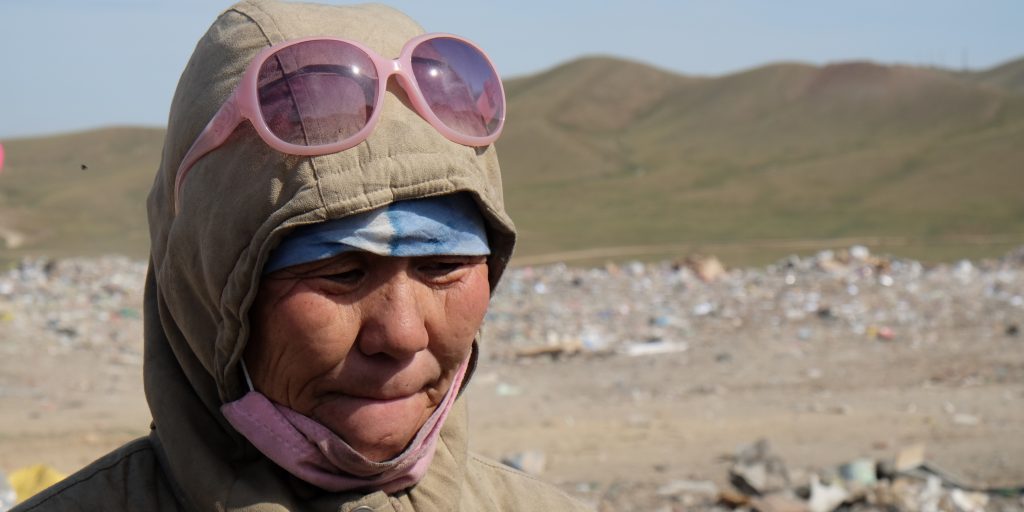Ulaanbaatar is growing, fast. The Mongolian capital has added several hundred thousand people in recent years, many of whom are abandoning the countryside and traditional forms of subsistence herding to pursue opportunities in the city. But the rush to the city is placing pressure on infrastructure like housing, transportation and other essential services.
David Hoffman, Communications director | 16 October 2019

‘Ujangabaatar’ is one of about a hundred informal waste collectors at the Moringin Davaa landfill on the outskirts of Ulaanbataar who are concerned about the future if their ability to earn money is jeopardised by a new Green Cities project.
It is impossible to visit the city and not notice the burgeoning ger districts (areas with round, traditional dwellings) mushrooming on the city’s outskirts, where migrants are relocating to fenced plots oftentimes with extended families.
As the pace of development quickens, so too does the need to provide adequate services to the city’s residents, and to do so in a way that is sustainable for future generations. For these reasons, Ulaanbaatar is one of several Green Cities across the world, an initiative launched by the European Bank for Reconstruction and Development together with other international donors and funds.
The Green Cities programme aims to address the most urgent infrastructure challenges facing growing urban areas in developing countries in a way that does not jeopardise a country’s ability to meet sustainability targets and fight against climate change.
One such project launched by the bank aims to bring an outdated landfill up to EU standards. While the goals of the project are laudable, many challenges persist. Because of the dire situation with Ulaanbaatar’s municipal waste infrastructure, the project received an exemption from adhering to EBRD policies and thus EU standards. In addition, safeguards are needed for the rights of the nearly one hundred or so informal waste collectors who make a living by recycling garbage at the landfill and reselling it to traders.
In the field
In September we visited the Moringin Davaa landfill on the western outskirts of the capital to speak with these collectors and find out more about what they know of the city’s plans and how such plans might impact their already precarious living arrangements.
According to Dolgor of the local NGO ‘Development circle’ – which safeguards the rights of waste collectors across the city’s various landfills – collectors are usually picking a variety of plastic and metals, burning the materials (though no one is concerned or aware about how this might affect a person’s health or air quality) and then selling to intermediary buyers.
Estimates from the approximately twenty collectors we spoke with suggest that they earn between 60 000 and 80 000 MNT per day, or roughly 25 euros. Most have tried some other form of employment but find themselves returning to collecting, which they do together often times with other family members.
Most interviews were held with men, as women at the site felt especially vulnerable and afraid to talk, and in case not wanting to have their photographs taken.
 Since he was seven years old, Byambabataar has for the last thirteen years been collecting waste with his mother.
Since he was seven years old, Byambabataar has for the last thirteen years been collecting waste with his mother.
One collector we met is Byambabataar. After he finished school, Byambabataar joined his family in collecting waste. While he tried other jobs, he found that the pay was better in the landfill. As with a common refrain heard elsewhere, he is concerned about the impacts on workers like his mother and the other older collectors. When he learned of the new project, his first thought was of her:
“There are women 60 years old working here. We are afraid that not everyone will be able to get a job, only a few of the younger people. All of them should be employed, there could be some training programmes or other assistance.”
Another collector Tsendsuren, who had previously worked in a sewing shop, but found that she could earn more money as a waste collector. Tsendsuren too did not know what she would do for a living without waste collection, but said she would hope to have some compensation to move back towards owning her own sewing shop.
Tsendsuren is a retired woman in her fifties who has been working at the landfill for seven years.
By the policy
Byambabataar, Tsendsuren and ‘Ujangabaatar’ were hopeful to hear about the participation of the EBRD in the landfill restoration project, because the bank requires its clients to adhere to certain principles and standards for livelihood restoration in the case of economic displacement. This would mean that the city of Ulaanbataar, as a recipient of the loan, would be required to ensure a proper resettlement and compensation for those workers who could no longer carry on their business as usual. From our interviews, It is unclear whether such a framework exists – whilst collectors spoke recently of participating recently in a survey with foreigners, it was not clear who these people were or for what the survey was intended.
The reality is however that this will be a tall task for a city lacking the institutional capacity and ill-equipped to deal with implementing EU standards or even approximation. The local coordinator of the Green Cities programme in Mongolia lamented the fact that although the city had held a series of consultations with a variety of stakeholders about what should be the priorities for the city’s development, officials were seen as too concerned with shifting political winds to implement a programme that would span further than an election cycle (How inclusive the consultations actually were is another point of contention altogether, as several NGOs described not being invited to participate).
The bank has an important role to play in ensuring that its loans are living up to its stated potential. For the livelihoods of these collectors depends on it.
Never miss an update
We expose the risks of international public finance and bring critical updates from the ground – straight to your inbox.
Location: Mongolia |
Tags: Green cities | Mongolia | development | human rights | resource | waste

